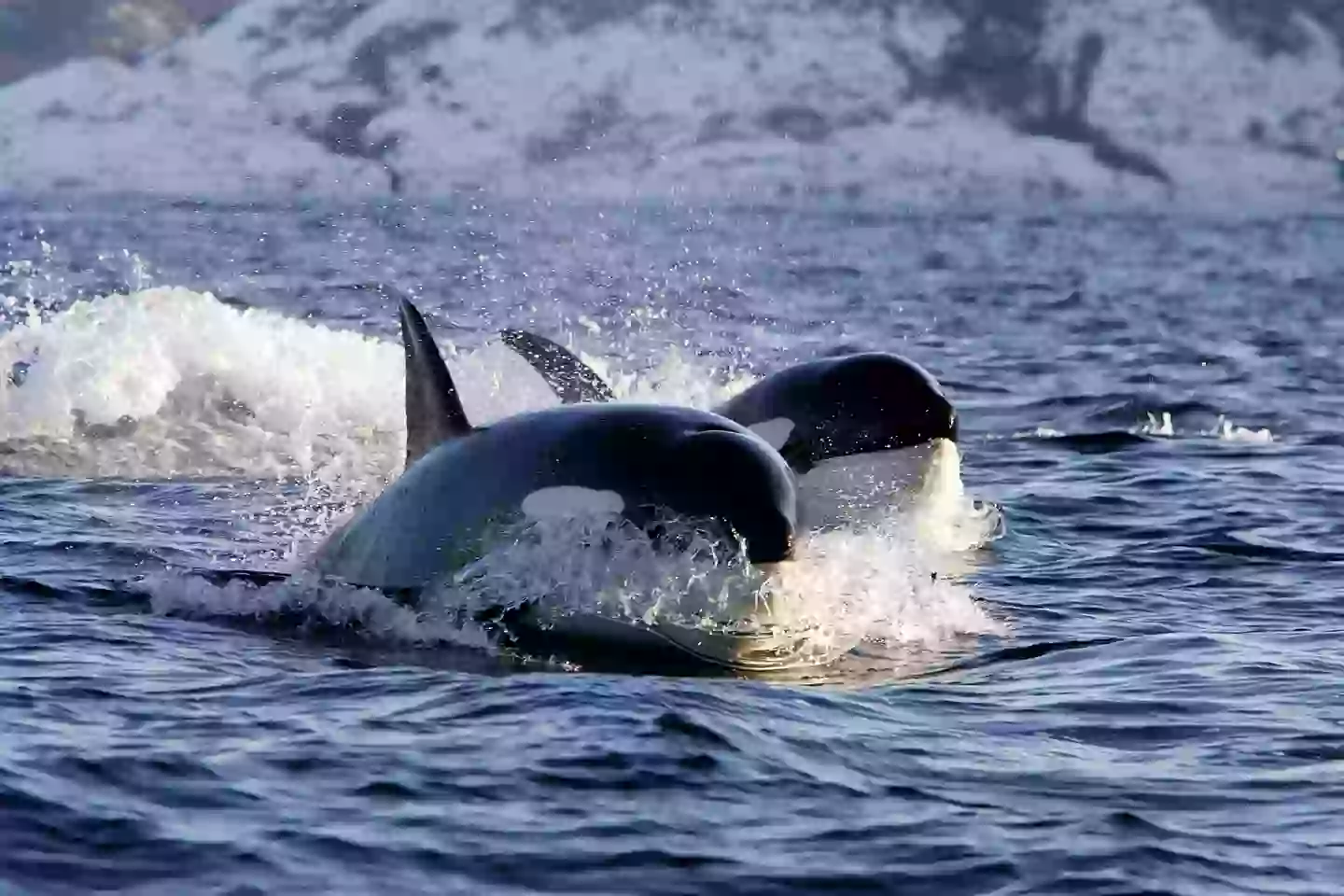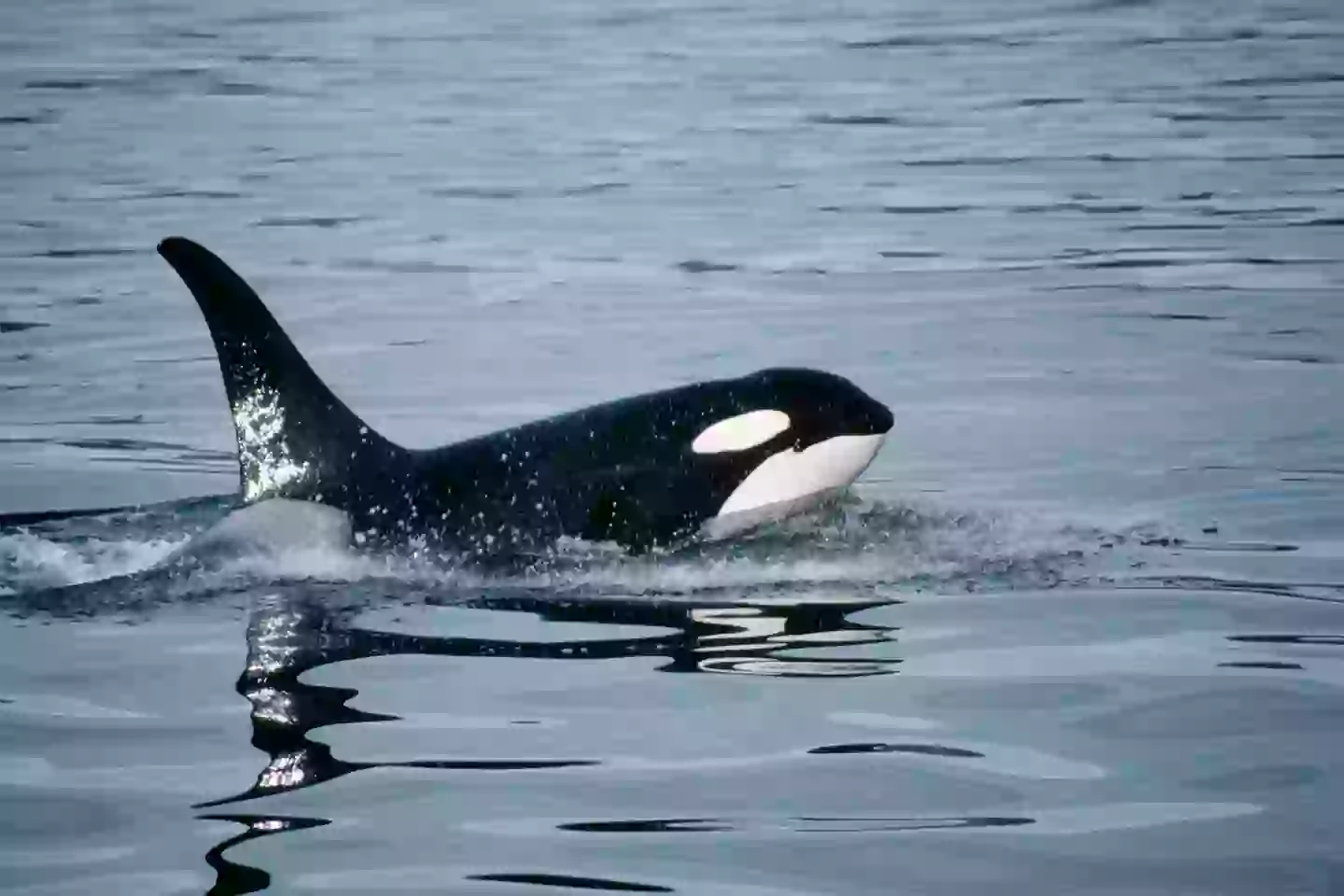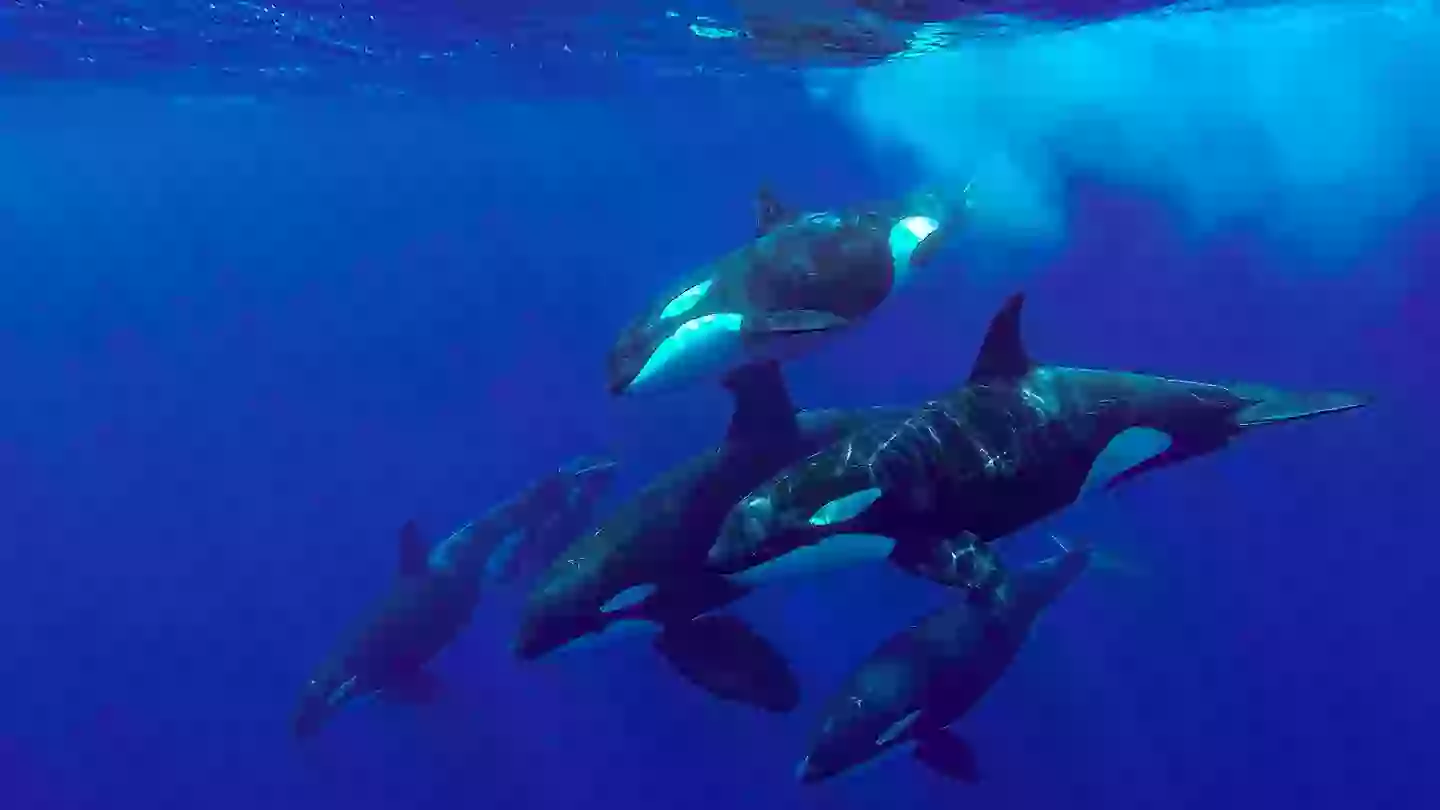Our understanding of nature and its myriad life forms, including orcas, is continually evolving, revealing surprises that challenge previous knowledge.
This intelligent species, known for their ability to mimic human speech, have now exhibited another intriguing behavior that has left researchers puzzled.
In a groundbreaking study, scientists observed killer whales grooming each other with seaweed, marking the first documented instance of marine animals using tools in this manner.
Such behavior has previously been recorded only in primates and humans, where chimpanzees and tamarins have been seen using sticks as tools.
Utilizing drones equipped with cameras, researchers witnessed a group of orcas removing pieces of bull kelp, a type of marine plant. These pieces were then rolled along their bodies, likely to aid in removing dead skin or parasites.

This newly observed behavior is detailed in a scientific paper published in the journal Current Biology.
The study monitored 72 killer whales in the southern Salish Sea.
One whale was seen removing a two-foot section of bull kelp, then balancing it before approaching another whale to wedge and rub against it.
Initially considered an isolated incident involving a single whale, researchers soon discovered multiple whales engaging in the behavior.
Michael Weiss, the research director at the Center for Whale Research and the study’s lead author, described the moment they realized the behavior was prevalent, remarking on the excitement of the discovery.
“We realized we had stumbled across a newly described behavior, which is remarkable,” Weiss explained. “You don’t even think it is a possibility to find something new like this when you’re observing whales.”

“It doesn’t surprise me that they have these intricate social interactions because we know they develop deep bonds between each other, that they are very smart and they figure out problems in their environment.”
While whales have been observed draping kelp over themselves in a behavior known as ‘kelping’, this new activity is distinct because the whales select and trim the kelp before using it cooperatively.
This newly observed technique has been named ‘allokelping’.
The behavior was restricted to members within the whale pod, most commonly among whales of similar age and close relation.
The whales’ abundance of dead skin suggests the practice may serve a purpose similar to human exfoliation, helping to remove dead skin and parasites.

The activity also appeared to strengthen social bonds, akin to how humans and monkeys connect.
Darren Croft, a researcher at the University of Exeter and executive director of the Center for Whale Research, noted that ‘touch moderates stress and helps to build relationships’.
“We know killer whales often make contact with other members of their group, touching with their bodies and fins, but using kelp like this might enhance this experience,” Croft said.
“It might also be important for skin health. Whales and dolphins have a variety of strategies to help them slough dead skin, and this may be yet another adaptation for this purpose.”
Orcas are also known for their development of ‘regional accents’, suggesting there is still much more to learn about these fascinating creatures.

